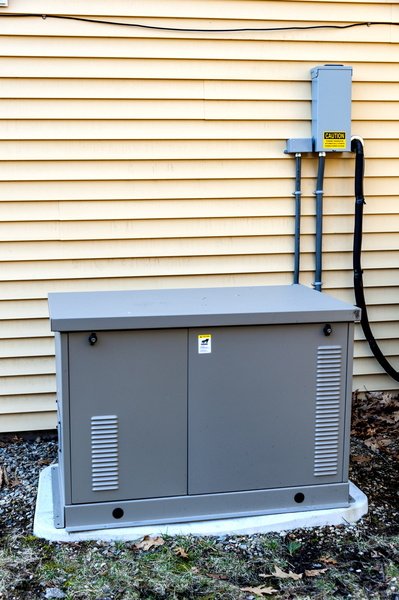Portable Generators Just Won’t Cut It in Emergencies
If disaster strikes and your power goes out, you can be left feeling helpless. You might even be tempted to pull out the portable generator to see if you can power up some of your appliances. However, we seriously advise against it.Instead, we suggest having an electrician in Kansas City, MO come to fit your home for a whole-house generator. Here’s why we don’t recommend using portable generators for emergencies.
They Don’t Generate Enough Power
First and foremost, a portable generator isn’t capable of doing the job that a whole-house generator can. A portable generator is great for powering up an RV when you’re camping, but a whole-house generator is in another league entirely.If there’s really nothing else available to you, we won’t say you shouldn’t use your portable generator. However, you’ll quickly see how much of a hassle it is to try and power your essentials with it. Every device needs to be manually plugged into the generator, so you can anticipate having extension cords running through your home.A proper whole-house generator is installed with your house’s electrical demands in mind, and it’s connected to the entire system. When the power goes out, the generator will automatically turn on, ready to start supplying power to all of your appliances.
Gasoline is Limited (In More Ways Than One)
Portable generators rely on gasoline. Again, if you’re using your portable generator for a specific purpose like camping, there’s no issue in filling up the generator and taking it with you. But if you’re trying to prepare for emergencies with a portable generator, you’ll find that gasoline brings a lot of issues:
- Gasoline can go stale after several months. You’d need to have your gasoline frequently rotated to ensure that you’re not putting bad gasoline in the generator.
- You can only store so much gasoline at one time. If you can’t predict how long your power outage will last, you can’t actually know how much fuel to carry.
On the other hand, whole-house generators can use fuel sources like propane and natural gas. These fuels are far more convenient to store and use.
- Propane is contained in a storage tank that is installed on the property, either above ground or underground. The tank is always connected to the generator, so there’s no need to manually fuel it or change out the fuel.
- Natural gas is even more convenient because there’s no storage tank required. The supply of natural gas is virtually unlimited—you can use as much as you’re able to afford. As long as the fuel lines aren’t compromised, you can stay powered up through the duration of the outage.
They Can Be Dangerous
We also want to add that portable generators can be dangerous when not used properly. One of the reasons we do not suggest relying on a portable generator in times of emergency is because it’s dangerous to run them indoors. Since the appliances we need to fuel during an outage are also indoors, it creates the temptation to run your generator from inside.Both portable and whole-house generators produce exhaust in the form of carbon monoxide, and that can become poisonous. Running your generator in the house because you don’t have a long enough extension cable is tempting but extremely dangerous.


